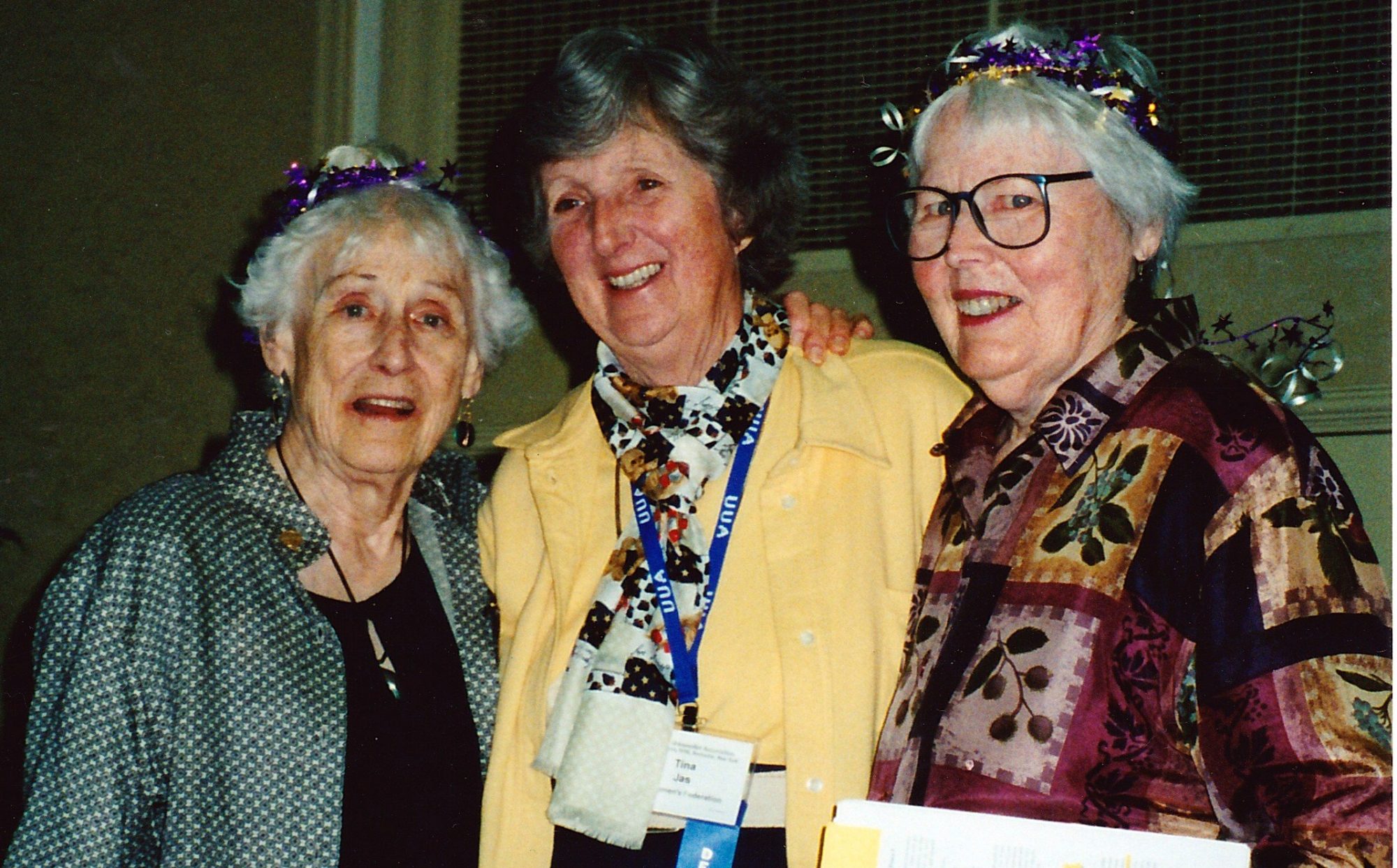Synopsis by Liz Fisher:
Lucile is 81 years old when she gave this talk at TOP. This is an interesting reflection that Lucile does on her life. She had presented three other stories in earlier years, all of which are posted here, but this one she felt was a new take on her life.
Note: Lucile writes this piece in the third person so when she is talking about herself, she uses the pronoun she. In using this technique, she is working to understand the various stages of her life and to create an archtypical feeling about her experiences.
She shares her attitudes toward her own parents, recounts what happened to her in her college years when she felt she was pursuing her own individual identity and after she received a college degree she taught for five years before she was married.
She talks about:
her childhood, an important dream she had when she was a child, losing her identity when she came under the influence of patriarchal indoctrination;
the church playing a preeminent role in reinforcing this patriarchal indoctrination. She makes this comment: By making the basic assumption of patriarchy – hierarchy or ranking – divinely ordained – one is made to feel evil in questioning and examining patriarchal and religious teachings.
She saw marriage as a complete change of her identity. She then talks about how that identity made her feel separate from her individual self. She felt she then had fallen prey to genderizing her own children.
She is candid about her depression and how that developed. Her inner voice was telling her that she was in adequate and continue to be with her.
She then talks about a program for women that she joined with other women in their mid-lives there was sponsored by the University. She was selected after going through a psychological test for the program. She says: The participants called it their retread program refer to themselves as the rusty ladies. Women who went to the program felt their lives have been changed. After six years she became a lecturer at the University and gains a more positive image of herself. But she needed to move because her husband’s job change. He went to teach at Stanford University because he had a prominent position in his field. She tells about how she was an adjunct to her husband’s life and career.
They eventually ended up in in the Boston area and this is when she really became involved in the women’s movement.
She goes on to talk about all the adjustments she made in her life when her husband and her mother died when she was 61 years old. She talks about retrieving her childhold self when she felt more independent and embodied.
She takes a good look at the Bible which she feels sanctifies male dominance and also reveals how she felt about the UUA and it’s reinforcing of patriarchy in those early days before the Resolution.
She references a book Christianity, Patriarchy and Abuse – A Feminist Critique – edited by JoAnn Carlson Brown and Carol Braun which was published in 1989. It is a very important book at that time and still relevant today. The title tells you what it’s about.
She says: because of the work we are doing here at the Theological Opportunities Program I’ve come to see and name some of the evils of patriarchy and religious dogma as they entwine and sustain each other.
She reaffirmed her commitment to radical feminism in the section Beyond Patriarchy and encourages people to bring about this radical feminism and insist that those in mainstream feminism must understand radical feminism or the feminist movement will fail.
Her sense of metaphorphsis
She ends this essay dramatically by telling us about a picture that is opposite the foot of her bed:
That picture depicts a woman kneeling with her head bent to the earth. It says: AM WOMAN GIVING BIRTH TO MYSELF.
